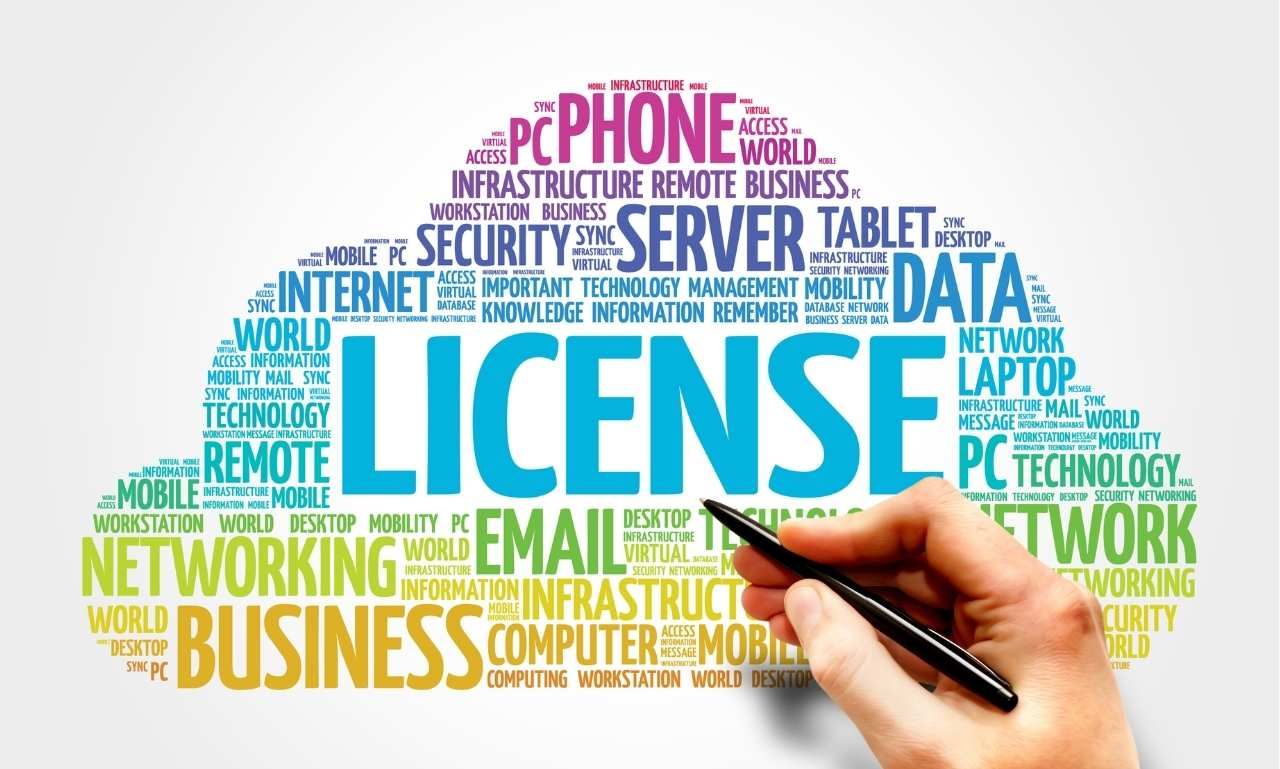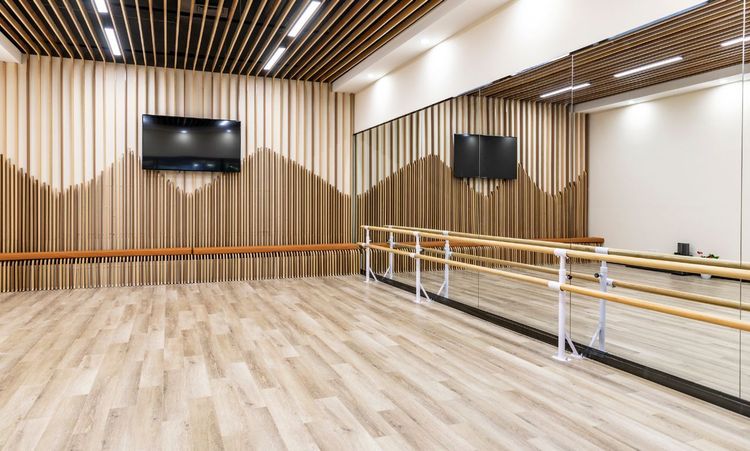Starting a dance studio requires more than just passion and talent. The legal requirements can seem overwhelming at first. This guide breaks down what licenses are needed to start a dance studio.
Do You Need a License to Start a Dance Studio?
Yes, you need several licenses to open a dance studio legally in the United States. Your specific requirements depend on location and business structure. The dance industry continues to grow, with over 65,000 dance studios operating in the US. Each follows strict licensing requirements.
Dance Studio Checklist

1) Register A Company
The first crucial step is registering your dance studio as a legal business entity. This process protects your personal assets from business liabilities. When selecting a business structure, you'll need to consider several options. A sole proprietorship offers the simplest setup process but no separation between personal and business assets. Many studio owners choose this route initially due to its low cost and easy setup. However, it leaves your personal assets vulnerable to business liabilities.
Limited Liability Companies (LLCs) provide an excellent middle ground for dance studios. This structure combines liability protection with tax flexibility. You can start as a single-member LLC and expand to multiple members as your studio grows. The formation costs are moderate, and the ongoing compliance requirements are manageable for most studio owners.
Corporations that suit more extensive dance operations are planning significant expansions. This structure offers the most substantial liability protection and makes it easier to raise capital through stock sales. However, corporations face more complex tax requirements and higher administrative costs.
Can You Register A US Business If You Are Not A US Citizen?
Non-US citizens can register a business in the United States. You'll need an Individual Taxpayer Identification Number instead of a Social Security Number. The process takes longer for non-citizens. Plan for 2-3 extra weeks of processing time. Many international dance instructors initially partnered with US citizens.
2) Choose Your State Of Incorporation
Each state offers different advantages for dance studio businesses. Consider tax structures, regulations, and market opportunities carefully.
How To Choose A State For Incorporation
The state where you incorporate your dance studio significantly impacts your business operations. Local dance market demand varies considerably across regions. Metropolitan areas often support higher class prices but face stronger competition. Rural areas might offer less competition but require more marketing effort to build a student base.
State tax rates and structures directly affect your bottom line. Some states charge no personal income tax, which benefits pass-through entities like LLCs. Others offer tax incentives for arts-related businesses or small enterprises. Research these implications thoroughly before deciding.
The cost of living and operation varies dramatically between states. This affects everything from instructor salaries to studio rent. New York and California typically have higher operational costs but support higher class fees. States like Texas and Florida often offer lower overhead costs while maintaining strong dance communities.
Competition levels require careful consideration. Oversaturated markets might require extensive marketing budgets to establish your presence. However, they also indicate a strong demand for dance instruction. Consider the ratio of existing studios to the population in your target area.
The available talent pool influences your growth potential. States with performing arts schools and established dance communities offer easier access to qualified instructors. This can prove crucial when expanding your class offerings or replacing staff.
3) Assign A Registered Agent
A registered agent receives legal documents for your business. They must maintain a physical address in your incorporation state. Commercial registered agent services provide reliable representation but cost more. These companies specialize in handling legal documents and maintaining compliance requirements. They often offer additional services like compliance calendars and document storage.
Your business attorney can be your registered agent, combining legal representation with document handling. This arrangement often makes sense for studios requiring regular legal counsel. The attorney already knows your business context when receiving legal documents.
Trusted professional associates offer another option for registered agent services. This might include your accountant or another business professional, as in the Miami Dance Center's case. Ensure they understand the responsibilities and maintain reliable office hours.
Serving as your registered agent saves money but requires maintaining regular office hours. You must be available during business hours to receive legal documents. This option works well for studio owners who maintain a consistent office presence.
4) Get Your Certificate Of Incorporation

This essential document proves your legal business existence. Processing times range from 48 hours to several weeks. Your Certificate of Incorporation serves as your business's birth certificate. You'll need copies for numerous business operations. Opening bank accounts requires presenting this certificate along with other formation documents. Most banks won't proceed with account setup without it.
Landlords typically request a copy to verify your business status when signing studio leases. This helps them confirm you're authorized to enter into commercial agreements. Some landlords require additional documentation, but the Certificate of Incorporation forms the foundation.
Obtaining additional licenses often requires submitting your Certificate of Incorporation. Local authorities use it to verify your business structure and registration status. Keep digital copies readily available for these applications.
Loan applications usually require this certificate as part of the documentation package. Lenders need to confirm your business's legal status and formation date. This becomes especially important for larger loans or equipment financing.
Setting up vendor accounts often requires certification of your business status. Vendors must verify your business's legitimacy, whether ordering dance equipment or establishing music licensing or licensing agreements.
5) Register The Dance Studio For Taxes
Tax registration involves both federal and state requirements. Your federal Employer Identification Number (EIN) is your primary tax identification. The IRS provides free online EIN registration through their website. Most studio owners complete this process in under 30 minutes. However, state tax registration involves more complexity. Sales tax permits enable you to collect and remit taxes on retail sales and some services.
Employer tax accounts become necessary when hiring staff. These accounts manage unemployment insurance and payroll taxes. Each state maintains different requirements and filing schedules. Local business tax registrations vary by municipality. Some cities require quarterly tax payments, while others collect annually. Research your local requirements carefully to maintain compliance.
6) Open A Business Bank Account
A dedicated business bank account creates an essential separation between personal and business finances. This separation provides multiple benefits for dance studio owners. Legal protection strengthens when you maintain separate accounts. Courts and tax authorities favor businesses that separate their finances more favorably. This becomes crucial if your studio faces legal challenges.
Clearer accounting practices emerge naturally with separate accounts. You can track business income and expenses without sorting through personal transactions. This simplifies tax preparation and financial planning.
Professional credibility increases when you operate with a business account. Students and vendors appreciate dealing with an experienced business entity. Payment processing becomes more straightforward with a dedicated business account.
Better loan opportunities arise when you establish a business banking history. Lenders review your business account activity when considering loans. A solid banking history can improve your chances of approval.
Types of Licenses Required to Start a Dance Studio
General Business License

Every dance studio needs a basic business license to operate legally. City licenses form the foundation of your licensing structure. These permits grant essential operating authority within city limits. Depending on your location, costs typically range from $50 to $500 annually.
County permits may be required in addition to city licenses. These permits often focus on health and safety compliance. Some counties require annual inspections as part of the permitting process. The fees usually fall between $100 and $300 per year.
State registrations vary significantly by location. Some states require separate registration for arts education facilities, while others include dance studios under general business registrations. These fees typically range from $75 to $400 annually.
Special use permits might be necessary depending on your location and activities. These permits cover specific aspects of studio operations, such as hosting performances or significant events. Costs for special licenses can range from $200 to $1,000 annually.
DBA License
"Doing Business As" licenses allow studio owners to operate under a creative business name while maintaining legal compliance. State filing requirements vary, but most charge between $25 and $100 for initial registration. County registration often accompanies state DBA filing, ensuring local records match state documentation. Depending on the county, fees typically range from $10 to $50.
Some states require newspaper publication of your DBA registration. This public notice informs the community of your business name and ownership. Publication costs vary by region but typically range from $50 to $300. Annual renewal fees maintain your DBA registration. These fees are lower than initial registration costs, usually between $10 and $50. Mark renewal dates carefully to maintain continuous registration.
Business Tax Identification
Your federal EIN forms the cornerstone of your tax identification structure. State tax ID numbers supplement this federal registration. Each state maintains different requirements and numbering systems. Local tax registrations might be necessary depending on your location. Some cities require separate tax identification for business license holders, and special event permits often require displaying both federal and state tax IDs.
Performance licenses sometimes require separate tax registration. This applies particularly to studios hosting public performances or competitions. Create a comprehensive reference sheet containing all your tax identification numbers.
Sales Tax License
Dance studios often engage in various taxable transactions. Merchandise sales require proper sales tax collection and remittance. This includes dance wear, equipment, and promotional items sold at your studio. Performance tickets often fall under sales tax requirements. Check your state's regulations regarding ticket sales and admission fees. Workshop fees might require sales tax collection in some jurisdictions.
Competition entries sometimes trigger sales tax obligations, which vary by state and event type. Special events hosted at your studio might require separate sales tax consideration.
Additional Considerations
Music Licensing
Music licensing protects copyright holders and your business. ASCAP, BMI, and SESAC represent different groups of music rights holders. You'll likely need licenses from multiple organizations to cover your music usage.
Annual licensing costs vary based on your studio size and music usage. Small studios might pay around $500 annually per organization. Larger operations can expect expenses up to $2,000 per organization annually.
Insurance Requirements
Dance studios need comprehensive insurance protection. General liability insurance covers common accidents and injuries. Most policies provide $1 million to $2 million in coverage. Professional liability insurance protects against claims related to instruction. This coverage becomes especially important for advanced classes and private lessons. Property insurance covers your studio space, equipment, and improvements.
Worker's compensation insurance becomes mandatory when hiring employees. Coverage requirements vary by state. Special event coverage protects performances and competitions hosted at your facility.
Zoning Permits
Zoning compliance ensures your studio operates in an appropriate location. Commercial space approval confirms your chosen location permits dance instruction. Most cities maintain specific requirements for educational facilities. Parking requirements vary by location and studio size. Some areas require one parking space per certain square footage, while others base requirements on maximum class size.
Noise ordinance compliance protects neighboring businesses and residents. Soundproofing might be necessary in some locations. Occupancy permits specify the maximum number of people allowed in your space. Fire safety certification ensures your studio meets safety standards. This often requires annual inspections and specific safety equipment. Keep detailed records of all inspections and certifications.
Conclusion
Starting a dance studio requires careful attention to legal requirements. Each license and permit serves a specific purpose in protecting your business and students. Begin the licensing process early. Most studio owners spend 2-3 months obtaining the necessary licenses. Plan accordingly and maintain detailed records of all applications and renewals.
Remember Maria Chen's advice: "Budget time and money for licenses. They're as important as your dance expertise." Success comes from proper planning and compliance.
Also Read: What Does In-Store Experience Mean?




